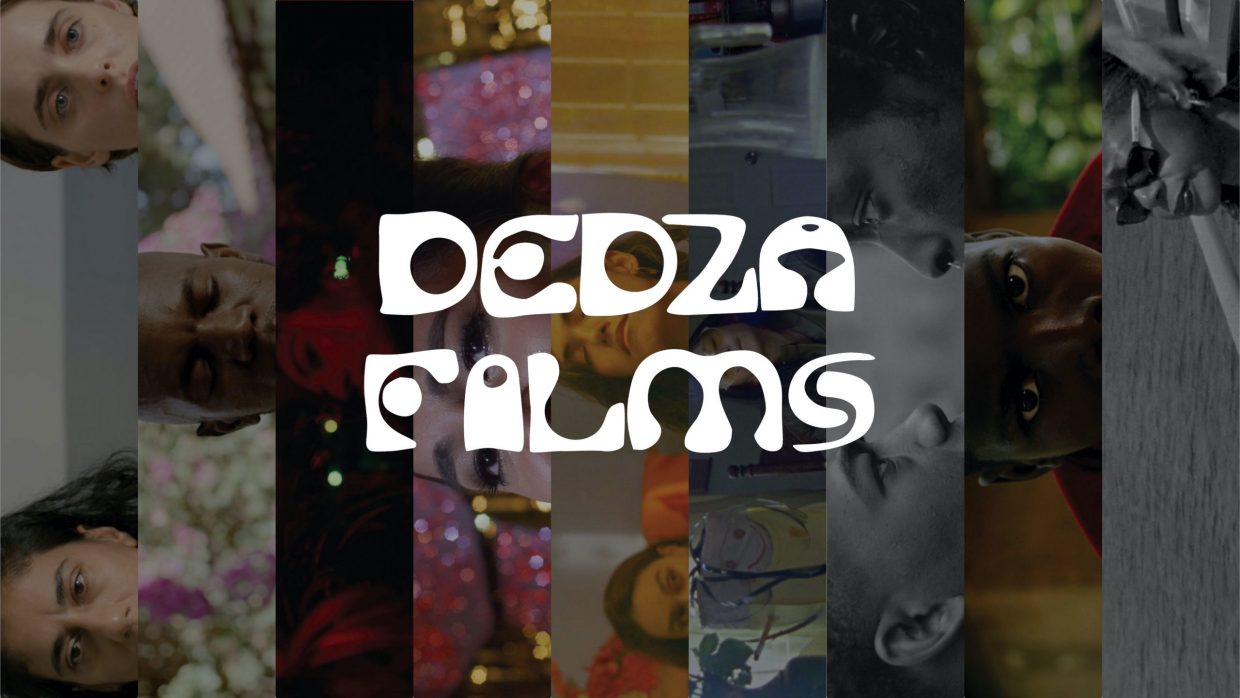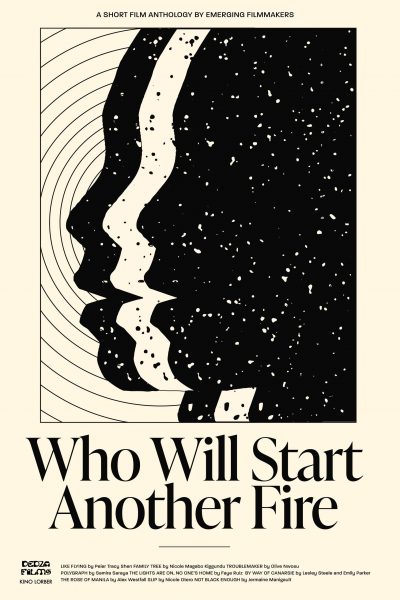 Back to selection
Back to selection
With a New Charles Burnett-Intro’d DVD, DEDZA Films Raises Voices of Young, Emerging Filmmakers

In June Dedza Films and Kino Lorber announced their first collaborative release, an anthology picture, Who Will Start Another Fire, containing nine independent short films by young emerging filmmakers hailing from underrepresented communities. Dedza’s first curatorial and distribution project, the film has already been released through Kino Lorber’s virtual cinema platform, playing day-and-date on TVOD and in select arthouse theaters. And this week there’s physical media: a DVD that features an introduction by Charles Burnett. All told, it’s a robust roll-out that augurs well for the vitality of this new voice in discovery and distribution.
The filmmakers included in the DVD are Peier Tracy Shen, Nicole Amani Magabo Kiggundu, Olive Nwosu, Samira Saraya, Faye Ruiz, Lesley Steele, Emily Packer, Alex Westfall, Nicole Otero and Jermaine Manigault. Over email I interviewed Dedza’s founder and president, Kate Gondwe, and its vice-president and editor-in-chief, Aaron Hunt (also a regular contributor to Filmmaker).
Filmmaker: This anthology arrives after an open call last fall seeking submissions. Could you tell us about the results of that open call in terms of number of submissions and, more generally, what you gleaned about the state of young cinema, particularly when it comes to your directive of finding filmmakers who “break the rules?”
Kate Gondwe: We acquire shorts through open submissions on our website, festival tracking, and through our own programming. Our acquisitions process covered hundreds of submissions while tracking films at festivals and elsewhere. Afterward, we held general meetings with filmmakers.
Shorts are much more feasible for emerging filmmakers, and for us, a way to engage with filmmakers from varied socio-economic backgrounds. Nowadays production has also become more accessible for filmmakers at any age to grab their phone or camera. We also recognize shorts aren’t just limited to emerging filmmakers.
I think producers in the shorts space are reassessing their budgets to include distribution and seeking more short distribution routes. I’d love for us to be able to acquire shorts at an earlier stage and, in doing so, build a greater campaign for them and hear more pitches.
Standalone short films are too difficult to book theatrical slots without a thematic tie to a feature. We curated our collection into one feature-length packaging. The mission is to add a theatrical release to shorts outside awards play whenever we can. Standalone short films traditionally work best with SVOD and we’re working to attain a deal with a streamer at the moment. I think it’s an exciting time to be a shorts filmmaker and even more so as a distributor because of the amount of emerging talent there is to track but interest from the audience.
DEDZA was created with a determination to provide distribution avenues for filmmakers who haven’t been offered accessible and sustainable routes to it. When you look into the short space, you’ll find that shorts distribution is limited to online and builds a surplus of uncurated content. We feel that shorts are rarely given the care they need and we will continue to research ways to improve short distribution.
Aaron Hunt: At the same time, we acknowledge that making shorts is unsustainable as a career. No one wants to stay a short filmmaker for the same reason the industry only sees shorts as the gateway to features: it’s nearly impossible to make a profit off of them, let alone make your own money back. Is it that shorts don’t sell? Or is it that shorts haven’t been resourced to sell? Well before the McKinsey report, audiences of color saw through the myth of supply and demand. Hollywood loses $10 billion dollars every year by undervaluing cinema by and for Black people. What do they lose by undervaluing everything else, by playing their cards so close, and by undervaluing shorts? For shorts to become sustainable on their own, theaters would have to radically reinvent their time slots and ticket pricing, SVOD services would need to provide shorts the marketing campaigns that their features (sometimes) receive, and they would need a kind of dedicated distribution that is nearly non-existent at this point, but which we hope to provide. We’re aware that the current systems won’t surrender their precious status quo, and that we may only ever make baby steps toward upending the state of things, but we’ll continue to experiment and measure what makes the most sizable change.
Filmmaker: Kate, how has your time at Kino Lorber, and the industry insight it has provided, informed your approach to Dedza specifically but also your thoughts about how short films and new voices can be distributed and promoted?
Gondwe: I started at Kino back in 2019 as a theatrical intern. I moved on to intern at NEON, and now Mubi. Each experience has taught and enhanced my curiosity in distribution. Dedza only opens more doors to speak with active leaders in this industry as we continue on this journey.
I pitched to Wendy Lidell, David Ninh, and Nicholas Kemp last year, a few months after Kino Marquee had been created to support arthouse cinemas. Our industry had a lot of reflecting to do in 2020 and will hopefully continue to reassess itself. When it comes to calling out the lack of diversity in film, distribution is too often overlooked. We had an opportunity to be the catalyst for change with DEDZA. Distributors have to notice the consumers’ demands, specifically for BIPOC stories—given the McKinsey report—and I’ve seen the shift begin. We hope DEDZA can apply that same pressure for change on the distribution side. The short space is a great way for distributors to support emerging voices of color and could be used to improve our industry.
I’m hopeful that we can release shorts theatrically, although I am aware of the challenges: limited windows, press coverage, and most screens prioritizing bigger titles. There are many ways we envision packaging shorts, and our next theatrical strategy will look different. With shorts, the most important thing I think we learned as a team and myself coming more from the feature space is that the top markets for features will not be the same for shorts. We think there is more potential in sales in non-theatrical partners, SVOD, and EDU. Our contracts will also change as we continue to acquire work. What’s most interesting to me is in this battle I’ve also seen how wrong this industry is in distributing “smaller” titles and BIPOC stories. Not every film can use the same release model. I’m most excited to see distributors who consider that.
DEDZA is scrappy, and through this imperfect process, I’ve gained valuable experience. All of our support has provided us further mentorship and the valuable sagacity needed for each team member to grow and DEDZA as well.
Filmmaker: Tell me about getting Charles Burnett to do an intro. How’d you connect to him and what was his response to the concept of Dedza?
Gondwe: We knew we wanted the filmmaker for our intro to reflect DEDZAs’ gravity and for them to understand our aim to disrupt. Charles Burnett and filmmakers of the emblematic L.A. Rebellion altered what Black life was on screen. More often than not, Black filmmakers aren’t provided the proper release to an audience, preservation, or sustainability to their career. I can say the same for other marginalized communities.
Distributors are one of the gatekeepers behind what stories Black filmmakers get to bring to audiences. There has been a disconnect between our stories and the selected few decision makers. We hope to build DEDZA as a home for those stories and filmmakers who are often told the market is “not ready” for even after the trend ends.
DEDZA will bring films to the very community the dialogue was intended for. I think we can demystify that the audience for our stories is too small, doesn’t want a challenge, and is only limited. Burnett is an inspiration, and it is an honor to have him speak on our behalf. His presence truly brings the collection full circle.
Hunt: I interviewed Charles last year and kept in touch with him and his producer Carolyn Schroeder, who is a legend herself. It didn’t take much to convince them, they were both well aware of the need for film distribution by people of color. We had a short turn around for the video intro, and Carolyn always describes scheduling something with Charles as “getting a bunch of crickets to jump up and down at the same time”, but after some technical difficulties, Charles’ sister-in-law came through at the last second to shoot the video, in which he tells the story behind the anthology’s title.
We are intensely influenced by many of the so-called L.A. Rebellion filmmakers, their imperfect and disruptive films, and their experimentation with self-sustainable, alternative forms of distribution.

Filmmaker: In this age of streaming, why is the physical media component important to Dedza?
Gondwe and Hunt: The DVD is a tiny step toward our goal to not only distribute, but preserve. We also want to provide our shorts the kind of treatment that is often reserved for feature films. Inspired by Cinema 16, we want to preserve emerging filmmakers’ works and continue the ongoing mission to add underrepresented voices to the canon of cinema. So many shorts have nearly invisible, digital lifespans. If a short isn’t set up for an Oscar campaign and gets picked up by a streamer it typically receives zero publicity or marketing campaign and drowns in the stampede of content. A DVD on a shelf is slightly harder to ignore. At the same time, we are also providing a TVOD release with Kino Now both available August 10.
Filmmaker: What are your plans going forward for future initiatives, and do you see Dedza growing into a full-fledged distribution company?
Gondwe: Yes, I think any owner realizes how personal the journey is. My growth is Dedza’s growth and that goes for the team as well. The top priority is to ensure whatever the future looks like is in favor of the mission. At the end of the day, Dedza as a brand stands for the moment our industry pushed for change and our releases speak for the next wave. We want to support the upcoming and bring a space for more voices. I’d love for us to also distribute features but taking it one step at a time. I’m working on an SVOD output deal. We want to acquire more work, meet more filmmakers, expand our industry network, attend festivals next year, expand the brand, and release more films each year. It’s been amazing getting to see my team grow as individuals along with our filmmakers that have now gone on to their next projects. We’ve been actively working on our next steps.
